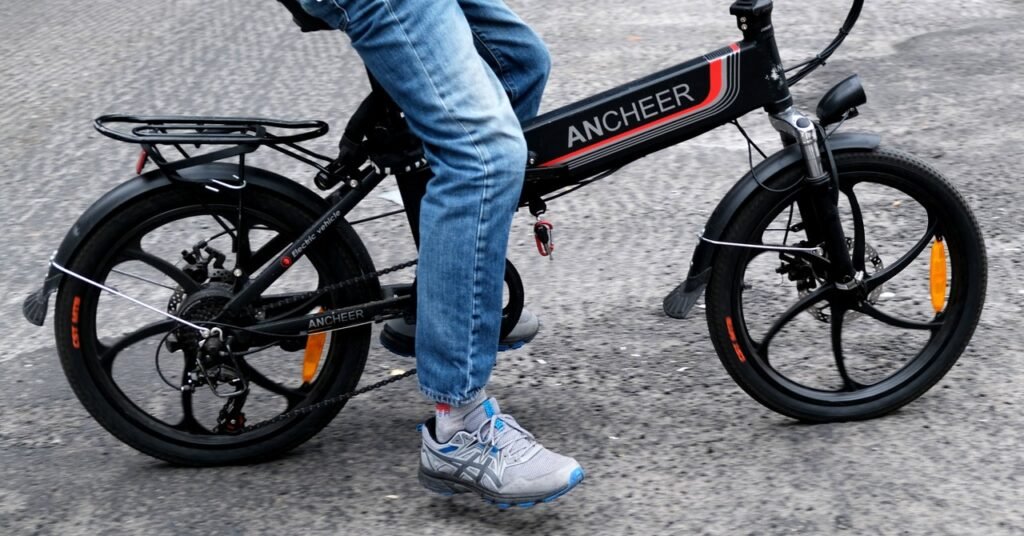Final week, the Biden administration introduced it will levy dramatic new tariffs on electric vehicles, electrical car batteries, and battery elements imported into the USA from China. The transfer kicked off one other spherical of world debate on how greatest to push the transportation business towards an emissions-free future, and the way world automotive producers outdoors of China ought to compete with the Asian nation’s well-engineered and low-cost car options.
However what’s an electrical car precisely? China has dominated bicycle manufacturing, too; it was accountable for some 80 % of US bicycle imports in 2021, in response to one report. In biking circles, the US’s new commerce insurance policies have raised questions on how a lot bicycle firms should pay to get Chinese language-made bicycles and elements into the US, and whether or not any new prices will get handed on to US prospects.
On Wednesday, the Workplace of the USA Commerce Consultant—the US company that creates commerce coverage—clarified that ebike batteries can be affected by the brand new coverage, too.
In a written assertion, Angela Perez, a spokesperson for the USTR, mentioned that ebike batteries imported from China on their very own will likely be topic to new tariffs of 25 % in 2026, up from 7.5 %.
But it surely’s unclear whether or not imported full ebikes, in addition to different biking merchandise together with youngsters’s bicycles and bicycle trailers, is perhaps affected by new US commerce insurance policies. These merchandise have technically been topic to 25 % tariffs because the Trump administration. However US commerce officers have constantly used exclusions to waive tariffs for a lot of of these biking merchandise. The most recent spherical of exclusions are set to run out on the finish of this month.
Perez, the USTR spokesperson, mentioned the way forward for tariff exclusions associated to bicycles can be “addressed within the coming days.”
If the administration doesn’t lengthen tariff exclusions for some Chinese language-made bicycle merchandise, “it won’t assist adoption” of ebikes, says Matt Moore, the pinnacle of coverage on the bicycle advocacy group PeopleForBikes. Following the announcement of extra tariffs on Chinese language merchandise earlier this month, PeopleForBikes urged its members to contact native representatives and advocate for an extension of the tariff exclusions. The group estimates tariff exclusions have saved the bike business greater than $130 million since 2018. It’s onerous to pinpoint how a lot this has saved bicycle patrons, however usually, Moore says, firms that pay increased “landed prices”—that’s, the price of the product to get from the manufacturing unit flooring to an proprietor’s residence—elevate costs to cowl their margins.
The tariff tussle comes because the US is within the midst of an prolonged electrical bicycle growth. US gross sales of ebikes peaked in 2022 at $903 million, up from $240 million in 2019, in response to Circana’s Retail Monitoring Service. Gross sales spiked as Individuals appeared for ways to get active and take advantage of the pandemic era’s empty streets. Ebike gross sales fell final 12 months, however have ticked up by 4 % because the begin of 2024, in response to Circana.
Within the US, climate-conscious state and native governments have began to suppose extra significantly about subsidizing electrical bicycles in the way they have electric autos. States together with Colorado and Hawaii give rebates to income-qualified residents. Ebike rebate packages in Denver and Connecticut had been so well-liked amongst cyclists that they ran out of funding in days.
A paper revealed final 12 months by researchers with the College of California, Davis, suggests these kinds of packages may work. It discovered that individuals who used native and state rebate packages to purchase ebikes reported bicycling extra after their purchases. Nearly 40 % of respondents mentioned they changed a minimum of one weekly automobile journey with their ebike within the long-term—the type of shift that might put a noticeable dent in carbon emissions.

